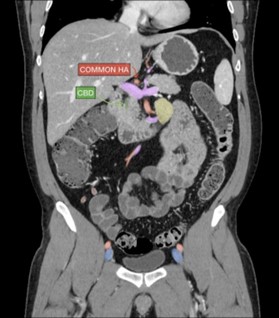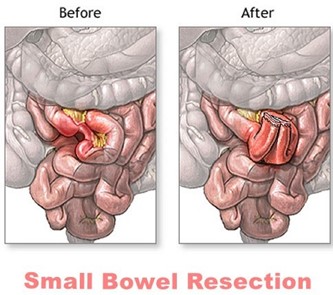A 68-year-old female client is being seen for follow-up wound care on her right lower leg. During her visit, the client states she hasn't had a bowel movement since her last visit a week ago. The client states she hasn't had much of an appetite in the past few days and says, "l figure I don't have anything in there to come out." The nurse auscultates the client's abdomen and hears hyperactive high-pitched bowel sounds in the upper left quadrant and hypoactive bowel sounds in the lower left quadrant. The nurse collaborates with the primary health care provider and the client is directly admitted to the hospital for possible intestinal obstruction. Before going to the hospital, the client asks the nurse what to expect. Which of these statements by the nurse (is) most likely accurate?
Select all that apply.
You should drink lots of water to help move the stool out of your body.
Surgery will be necessary to remove any Obstruction.
A nasogastric (NG) tube will be placed to relieve distention.
An abdominal CT will determine if you have an intestinal obstruction.
Correct Answer : C,D
Option A is not the best advice because drinking lots of water alone may not be enough to relieve constipation, especially if there is an obstruction.
Option B is also not accurate because not all intestinal obstructions require surgery, and the treatment approach will depend on the cause and severity of the obstruction.
Option C is accurate because a nasogastric tube can help relieve any distention caused by the obstruction by removing any gas or fluids that may have accumulated in the stomach and small intestine.
Option D is also accurate because an abdominal CT is one of the diagnostic tests that can help confirm the presence of intestinal obstruction and provide information about the location and cause of the obstruction.

Nursing Test Bank
Naxlex Comprehensive Predictor Exams
Related Questions
Correct Answer is B
Explanation
Gas pains and abdominal distention are common postoperative complications following small bowel resection. Ambulation is a simple and effective nursing intervention that can help alleviate these symptoms. Walking helps stimulate peristalsis, which can help move gas and stool through the gastrointestinal tract. It can also help prevent postoperative complications such as pneumonia and deep vein thrombosis.
Administering morphine sulfate (option A) may relieve pain, but it can also worsen constipation and abdominal distention. Promethazine (option C) is an antiemetic medication and may be helpful if the patient is experiencing nausea, but it is not the best intervention for gas pain and abdominal distention. Instilling a mineral oil retention enema (option D) may also be helpful in some cases, but it is not typically the first intervention for these symptoms and should be ordered by a healthcare provider.

Correct Answer is B
Explanation
The nurse should explain to the patient that phenazopyridine is a medication that can help relieve the pain, burning, and urgency associated with UTIs. However, it does not treat the underlying infection. The nurse should also instruct the patient to take the medication as prescribed by the healthcare provider and inform them that the medication may turn their urine an orange or red color, which is a harmless and expected side effect.
The nurse should also inform the patient that taking phenazopyridine before sexual intercourse is not recommended and that the medication should be taken as directed by the healthcare provider.
Whether you are a student looking to ace your exams or a practicing nurse seeking to enhance your expertise , our nursing education contents will empower you with the confidence and competence to make a difference in the lives of patients and become a respected leader in the healthcare field.
Visit Naxlex, invest in your future and unlock endless possibilities with our unparalleled nursing education contents today
Report Wrong Answer on the Current Question
Do you disagree with the answer? If yes, what is your expected answer? Explain.
Kindly be descriptive with the issue you are facing.
